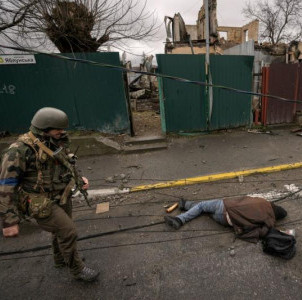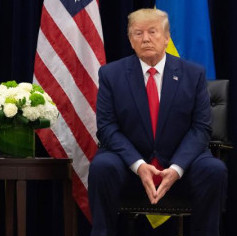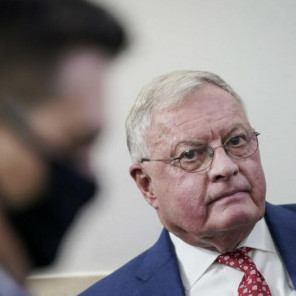Several leading NATO member states have recently voiced utter disagreement with the U.S. missile-defense plan for Europe, or at least have strong doubts about it.
Germany’s Foreign Minister Frank-Walter Steinmeier, for example, says Washington had better discuss the placement of elements of its MD system in Poland and Czechrep with Russia. The German government is convinced that U.S. MD project directly concerns Russia, as the Polish and Czech territories are very close to its borders, and Russia should therefore be involved in the negotiation process.
Also, Berlin does not sound approving of the ardor shown by “junior” NATO members – Poland and the Czech Republic – in rushing to host U.S. missile-defense bases without appropriate consultations with “senior” European partners.
As is known, another European NATO member state, Norway, has assumed an unambiguously negative stance on the plans to deploy U.S. missile-defense bases in Europe. That country’s defense minister, Anne-Grete Stroem-Ericsen, said official Oslo is very skeptical of the U.S. plans.
She has recently told Norwegian newspaper Aftenposten that Norway will categorically protest against U.S. MD plans in their current shape at the upcoming NATO consultations. The Norwegian government believes deploying a U.S. missile defense in Europe would trigger a renewed arms race.
Another important NATO member, France, opposes the deployment of U.S. missiles in Europe, too. When asked to comment on Russia’s concerns over U.S. MD talks with Poland and Czechrep, French Foreign Ministry spokesman Jean-Baptist Matei said Paris was not interested in the U.S. MD system expansion program and was not planning to participate in it directly.
Even though his country’s Foreign Ministry has made no specific comment on the issue, Matei admitted that it supports taking into account other nations’ concerns over that program. France thinks it would be better to initiate a dialog on the issue with “all the interested sides,” for example Russia and other strategic partners which could be involved in the program, in order to dissipate concerns over these plans, French Foreign Ministry spokesman added.
In addition, Paris does not sound exactly approving of Washington’s favorite practice of holding selective consultations with specific NATO members rather than with the alliance as a whole.
Other NATO member states have not given clear assessments of the U.S. MD plans. However, there is no secret that many parliament members in such European states as Italy, the Netherlands, Belgium, and even Poland and the Czech Republic are against the expansion of the U.S. ‘missile shield’ to Eastern Europe, which means European nations are naturally concerned about the consequences the U.S. plans might have, if implemented, for the international and regional security.
The public in Europe also objects to hosting U.S. anti-missiles. Observers predict that, once the U.S. MD project moves on to practice, Europe might see an outburst of anti-U.S. protests similar to those of 1980s, when Europeans protested against the deployment of U.S. intermediate-range missiles.
Just like the war in Iraq did earlier, U.S. MD program has again revealed the controversy between the U.S. and old NATO members, as well as tensions between NATO “veterans” and newly admitted members, former Warsaw Pact participants.
The situation is easily explainable. Old NATO members are primarily guided by their national interests and keen not to let the U.S. influence on European affairs grow too strong, whereas the newly admitted ones, which owe their membership to Washington and often depend on it politically and economically, go out of their way to prove their loyalty to the U.S., even at the expense of ceding some of their national sovereignty.
European NATO member states’ concerns and doubts about U.S. MD plans are quite grounded. Analyzing those plans, one can easily conclude that Washington is primarily defending its own interests, while Europe’s interests are, if anything, of secondary importance to it.
As is known, NATO has not yet made a consolidated decision on the scope and structure of a missile defense system, which means the U.S. system will not necessarily be integrated into the Alliance’s command network. Still, Washington says its ‘missile shield’ in Europe will protect European NATO members; therefore NATO will have to share the costs of supporting that shield’s infrastructure.
So, NATO member states in Europe will incur additional costs and certain risks in the event of an actual attack intercepted by U.S. missiles, while all the decision-making will be done by Washington alone. Moreover, under the U.S. plan, the ‘shield’ will be exclusively raised above military bases and NATO facilities where U.S. troops are deployed, while the rest will not necessarily be covered by it quickly enough, if at all.
All this considered, it becomes clear why far from all NATO members like it and why the U.S. can no longer expect a 100% support for its missile-defense initiatives within the Alliance. If Washington is ready to ignore even its own allies’ objections, what kind of democracy and respect for others’ perspectives are we talking about?









